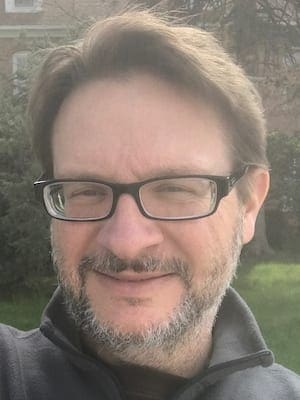The Society of Christian Ethics and The Society of Jewish Ethics held their annual meetings concurrently in Phoenix earlier this January. Both societies are academic in nature and in membership, comprised of professors and scholars from North America and other countries.
As an ethics professor, I attended the meeting with eagerness, looking forward to engaging academic scholarship arising from many of the moral issues confronting contemporary cultures, particularly those that touch American lives and life.
These kinds of conferences—just like any other trade conference or professional meeting—contain their own language and grammar, as it were. But the popular assumption that the particular language of academic theology is far removed from common moral discourse and popular concerns is false.
The conversations that occurred out in the desert were not stereotypically arid. They were socially, politically and morally fertile. In fact, the deliberate effort on behalf of the SCE to negotiate the tenuous moral grid now separating Christians and Muslims in the United States illustrates this point perfectly.
The society invited Sohail Hashmi to give the SCE-SJE Plenary address. Dr. Hashmi is the associate professor of international relations at Mount Holyoke College in Massachusetts.
His understanding of Islamic culture’s relationship to democracy, and therefore to the Christianized West, is noteworthy not only for political and religious scholars, but also for presidents, legislators, citizens and all who claim to live in the “civilized world”.
Islam, in nature and practice, he said, is a religion that treasures and fosters “civil society.” It does so through the Quran’s description of Umma, a concept of community inherently religious, but seemingly transposable to civil society.
Within the Umma, persons bear rights similar in effect to those established in Western democracies. Freedoms and protections correspond with claims and duties to provide an ordered society of economic, political, intellectual and artistic exchange.
According to the Quran, Islamic society is the truest Umma, or civil community, but the communities of other faiths and their laws are respected Umma as well. Persons of Christian or Jewish Umma maintain respected freedoms and protections under their own laws, Quranic notions of Umma suggest.
Furthermore, the concept of Umma can be broadened to encompass humankind in order to show the interconnectedness of the different religious cultures across the globe.
Hashmi strongly maintained that this Islamic understanding of civil society has been eclipsed by the radical fundamentalisms presently power-broking in the Middle East. Through the actions of these extremists, non-Muslims believe that democracy and Islam are antithetical social orders.
Hashmi suggested that it is this “democratic deficit” that Westerners see in Islamic societies that underlies the fracture between Muslims and non-Muslims. Western Christians and Jews fear and despise Islam not for religious reasons, but for political ones. Democracy seems to be the defining ground for one’s “evilness” or “goodness”.
For this reason—though not clearly evident to Westerners—Islamic scholars, teachers, moderates and leaders are pressing their countries to recover the Islamic concept and practice of civil society. Not only will a faithful Islamic moral order emerge once again, but the Muslim world will be reconnected with the rest of humanity—the universal Umma—for whom democracy seems to be the prevalent political order.
Hashmi’s argument was largely apologetic in nature. It was hopeful, as well, pointing out the common ground that Western and Middle-Eastern cultures share.
However, Hashmi’s remarks left a bitter taste in my mouth. But this bitterness is not like the distaste many American Christians express when told that Muslims and Christians and Jews share the same values.
Like Jonah, many American Christians cannot bring themselves to believe that another people might be able to participate in the fruits of God’s kingdom. That is, unless they repent to “democratic” righteousness.
My bitterness ensued from the realization that once again I have a difficult time swallowing the story that America and Americans tell about itself.
Ironically, other conference speakers indicated that democracy itself has become a type of fundamentalism thwarting the peaceful existence of peoples of difference. Its power is located partly in the religious convictions of many Christians and Jews.
In these cases, democracy provides the ideological context for Christians and Jews to do exactly what non-democratic Muslim states are doing: make exclusive claims on civil ordering.
Marc Ellis of Baylor University argued in the SJE plenary session that “Constantinian Judaism”—the conflation of Judaism with the state of Israel among Jewish neo-conservatives and liberals—has eroded the contributions of the exilic Jewish community to a notion of Jewishness as “constant vigilance regarding justice, compassion, forgiveness and reconciliation.”
Waziyatawin Angela Wilson, a Wahpetunwan Dakota from the Upper Sioux reservation in southwestern Minnesota and professor at Arizona State University, castigated—as well as mourned—the inability of American democratic society to truthfully tell the story of its own atrocities against Native Americans.
For her, the Christian practice of remembering seems to be a selective process safeguarded by a truth that appears greater than the Christian gospel: American democracy.
I cannot do justice to the arguments of each of these passionate thinkers. In fact, if my summary makes their claims appear supercilious against an easy target—America—I exhort the reader to locate this deficiency within my account of their arguments rather than in the arguments themselves.
Ultimately, these scholars reminded me of just how much stock Americans place in our version of what it means to be a civil society. They also reminded me of how deeply frustrated I am by how influential the ideologies of the Pat Robertsons and the Richard Lands and the TBN’s of American Christianity seem to be in the shape and practice of American democracy.
Democracy seems to be a sibling to Umma, and thanks to Hashmi, I believe that the Muslim version of “civil order” might have something to teach the American empire. It seems that the desert is not just for hermits, but for the word of peace.
Andy Watts is an assistant professor of religion teaching ethics at Belmont University.

